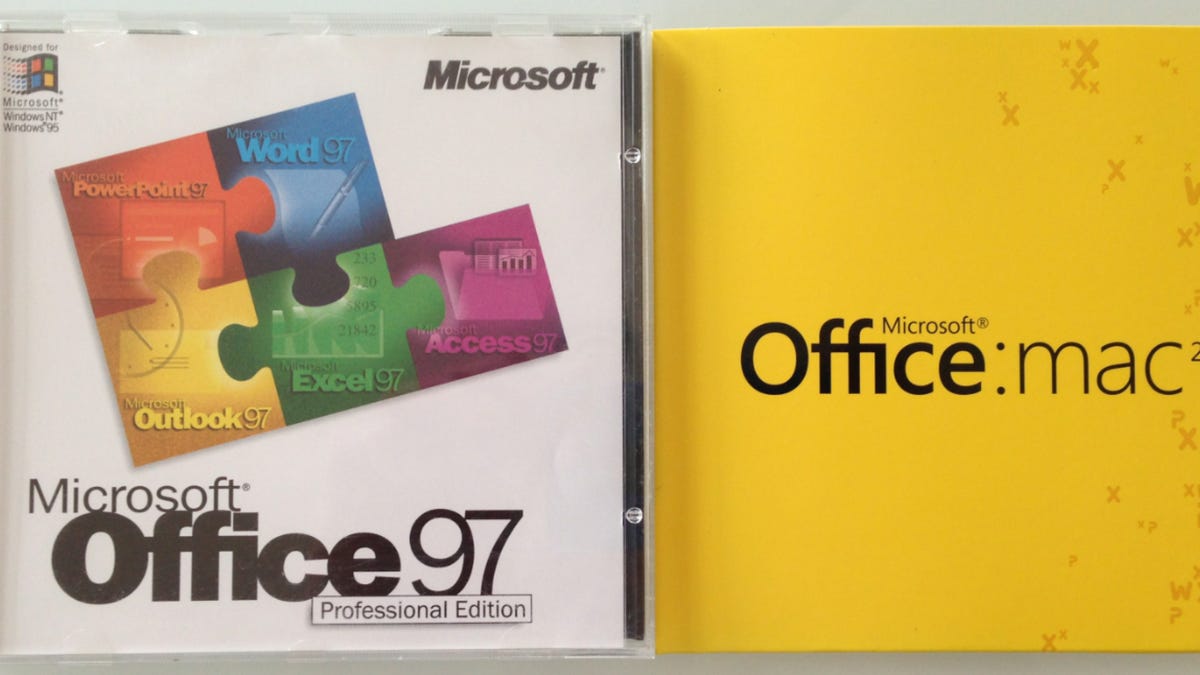My Declaration of Independence from Outlook
Outlook was once the first thing he installed on a new computer. But its failure to connect with the cloud finally pushed long-time user Danny Sullivan away from the program.

"When in the course of computing events, it becomes necessary for one people to dissolve the bands that have connected them with particular programs."
Forgive my rewrite of the first line of the Declaration of Independence. But it's that time of year and appropriately, I've finally declared my own independence from my long-time allegiance with Microsoft Outlook.
I have been an Outlook user since 1997, and I still have the disc to prove it. I've continually stuck with Outlook, upgrading with each release. I admired how the program matured and improved over the years. It was a trusted, all-in-one solution for managing my e-mail, my contacts, my notes and my calendar. It was the first program I would install on any new computer because it was that important to me.
Outlook is stuck in Outlook
Unfortunately, Outlook has not kept up with connecting to the cloud. When I used Outlook with Windows, I found my contacts and notes were effectively trapped from talking to Google, unless I wanted to go through some complicated steps. Having Outlook sync with Apple's iCloud was easier, but since I use both Android and iOS devices, it wasn't a complete solution.
Last year, I moved over to the Mac for most of my day-to-day computing. There, as I explained in my column last year, Outlook Mac was even more cut-off. It couldn't talk to Google. It couldn't talk to iCloud. It couldn't even sync with the contact database on my Mac. Ultimately, all it could do was e-mail.
Because Outlook is such a good e-mail client, I lived with these limitations. I ultimately turned to BusyCal as a good desktop calendar app that could also sync to Google (and thus be a bridge to my iOS and Windows Phone devices).
For my notes, while the Mac's native program can sync out beyond iCloud, to Gmail, it wasn't a great solution. But I use notes far less than my calendar or contacts, so finding a better solution hasn't been as pressing.
The contact sync tipping point
Contacts were the real issue for me. Increasingly, it was a pain that I couldn't edit a contact in Outlook on the Mac and have that flow out to the cloud, to appear with the changes on my various mobile devices. Early last week, I resolved to find a solution.
I began looking at third-party apps. I also looked at the new Office 365 service from Microsoft, only to discover all it had to offer me was the same version of Outlook Mac 2011 that I was already using and becoming frustrated with. Business-oriented offerings Microsoft had felt like overkill.
I just wanted to sync my contact from my e-mail program, something that if I used the native Mail app on the Mac wouldn't be an issue. And then it came to me. Why not use that app?
Dumping Outlook
And so I did. I hadn't been a big fan of the Mac's mail app in the past, but it has improved. I also tried Postbox and have been using that for day-to-day e-mail for about a week now. I love Airmail most of all, and if the multiple-signature support the program maker tells me is coming actually arrives, I might jump over to that.
In a future column, I'll cover how it has gone with each of these programs, what I liked, didn't like, and decided to stick with. But what I know now is that I'm not going back to Outlook. These programs all work about as well as Outlook. They also do what Outlook can't: talk to the Contacts app on my Mac. In turn, the Contacts app can talk to Google, and that gets my contacts in sync across many of my devices.
Feeling abandoned by Microsoft
Columns like this tend to attract fanboy rabidness, so I'll say what I always say -- whatever programs you use, whatever platforms you like, if they work for you, that's great. Don't let anyone tell you that you're wrong.
Having said that, for me, I'm deeply struck at how much I feel like Microsoft itself has driven me away from its products. Windows 8 was the disaster that sent me over Mac OS full time (previously I'd been happily using Windows 7 on Mac hardware). Windows 8.1 seems like it's an improvement, but I've made my shift now.
Microsoft still had me holding on with Outlook, but after a year of hoping things would get better, it was time to move on. Nothing Microsoft did or has said made me feel the situation would get better.
There's still Excel, which I dearly love. And my Xbox, though my kids think I'm crazy for pre-ordering the Xbox One from all they've heard about it. Now I kind of have second-thoughts myself. There's also the retired Microsoft Money 2009 that keeps chugging along better than Quicken for me. Come on, Microsoft, maybe it's time to bring that back.
But for Outlook, I'm done. If somehow Microsoft finds a way to make it talk in an easy and cross-platform way to the cloud, I might be back. But to me, it was self-evident I could better pursue computing happiness by leaving it behind.

